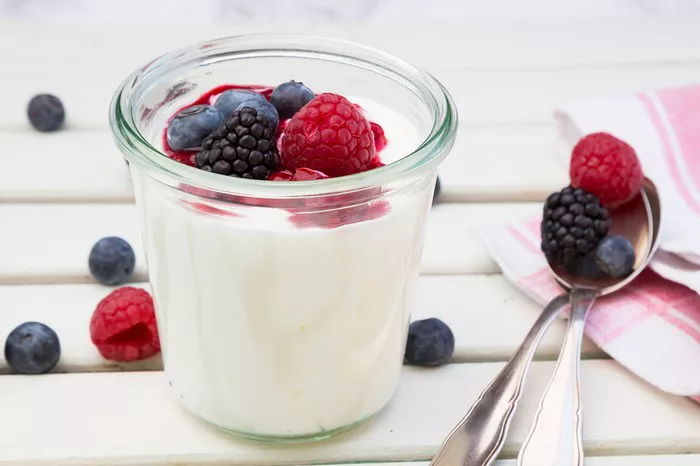Our skin, the largest organ in our body, often reflects our internal health and well-being. Achieving that coveted radiant glow doesn’t always require expensive skincare products or treatments. In fact, the key to luminous skin might just be hiding in your kitchen. By making mindful choices about what you consume, you can nourish your skin from within and achieve a natural and lasting radiance. Let’s delve into the world of nutrition and discover what to eat for glowing skin, all in the comfort of your own home.
The Importance of Nutrition for Skin Health
Before we dive into the specifics, it’s important to understand why nutrition plays such a vital role in the health and appearance of our skin. The foods we eat provide our bodies with essential nutrients, vitamins, and minerals that support various bodily functions, including those that influence skin health. Antioxidants, healthy fats, vitamins, and hydration are among the key factors that contribute to a radiant complexion.
1. Hydration: The Foundation of Radiant Skin
Perhaps the most fundamental aspect of achieving glowing skin is staying hydrated. Water helps to flush out toxins from the body, maintain skin elasticity, and improve circulation, all of which are essential for a healthy complexion. Herbal teas, infused water, and coconut water are excellent choices to keep your skin cells plump and hydrated.
2. Beautiful Berries for Antioxidant Boost
Berries such as blueberries, strawberries, and raspberries are packed with antioxidants that help protect the skin from damage caused by free radicals. These powerful compounds combat premature aging and promote a youthful glow. Incorporating a handful of berries into your breakfast or as a snack can provide your skin with a nourishing dose of antioxidants.
3. Green Leafy Vegetables: A Nutrient Powerhouse
Dark green leafy vegetables like spinach, kale, and Swiss chard are rich in vitamins A and C, which are known to support skin repair and collagen production. Vitamin A aids in maintaining skin’s suppleness, while vitamin C promotes a healthy complexion by boosting collagen synthesis. Including these vegetables in salads, smoothies, or stir-fries can significantly contribute to your skin’s radiance.
4. Healthy Fats: The Secret to Soft Skin
Incorporating sources of healthy fats into your diet can do wonders for your skin. Foods like avocados, nuts, and fatty fish are rich in omega-3 fatty acids, which help maintain the skin’s natural lipid barrier. This barrier locks in moisture and keeps irritants out, resulting in soft and supple skin. Salmon, chia seeds, and walnuts are excellent choices to introduce these beneficial fats into your meals.
5. The Magic of Vitamin E
Vitamin E acts as a potent antioxidant that protects the skin from damage caused by environmental factors, such as UV rays and pollution. Nuts, seeds, and spinach are excellent sources of this vitamin. Vitamin E also supports skin healing and reduces inflammation, making it a valuable asset in achieving a clear and radiant complexion.
6. The Protein Connection
Proteins are the building blocks of our body, and they play a crucial role in maintaining healthy skin. Collagen, a protein that provides skin with elasticity and suppleness, relies on adequate protein intake. Incorporate lean protein sources like poultry, beans, lentils, and tofu into your diet to support your skin’s natural renewal process.
7. Citrus Fruits for a Vitamin C Boost
Vitamin C is renowned for its skin-brightening effects. Citrus fruits such as oranges, grapefruits, and lemons are rich in vitamin C, which supports collagen production and helps fade pigmentation. Starting your day with a glass of warm water and lemon juice can kick-start your vitamin C intake and promote a glowing complexion.
8. Whole Grains: Complex Carbohydrates for Skin Health
Opting for whole grains over refined carbohydrates can benefit not only your overall health but also your skin. Whole grains like quinoa, brown rice, and oats have a lower glycemic index, which means they won’t cause spikes in blood sugar levels. High-glycemic diets can contribute to acne and other skin issues. Choosing whole grains provides a steady supply of energy to your body while promoting skin health.
9. Herbal Teas for Detoxification
Certain herbal teas, such as green tea and dandelion tea, are known for their detoxifying properties. Green tea is rich in antioxidants that help protect the skin from damage, while dandelion tea supports liver function, aiding in the body’s natural detoxification processes. Substituting your regular beverages with these herbal teas can have a positive impact on your skin’s clarity and glow.
10. The Anti-Inflammatory Benefits of Turmeric
Turmeric, a golden spice with powerful anti-inflammatory properties, can benefit your skin in numerous ways. Curcumin, the active compound in turmeric, helps calm inflammation, reduce redness, and promote an even skin tone. Including turmeric in your cooking or enjoying a warm cup of turmeric tea can introduce these benefits to your skincare routine.
Conclusion
Achieving radiant skin doesn’t always require a shelf filled with skincare products. By making mindful choices about what you consume, you can nourish your skin from within and unlock its natural glow. Hydration, antioxidants, vitamins, and healthy fats are among the key factors that contribute to a luminous complexion. Incorporating a variety of skin-loving foods into your diet can help you achieve the radiant and healthy skin you’ve always desired. Remember, the journey to glowing skin starts from the inside out, and your kitchen is your best ally in this endeavor.
























